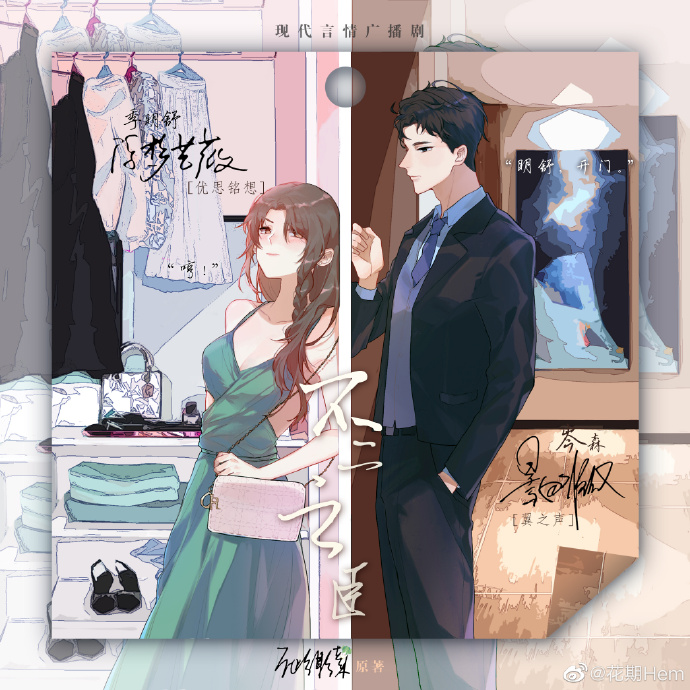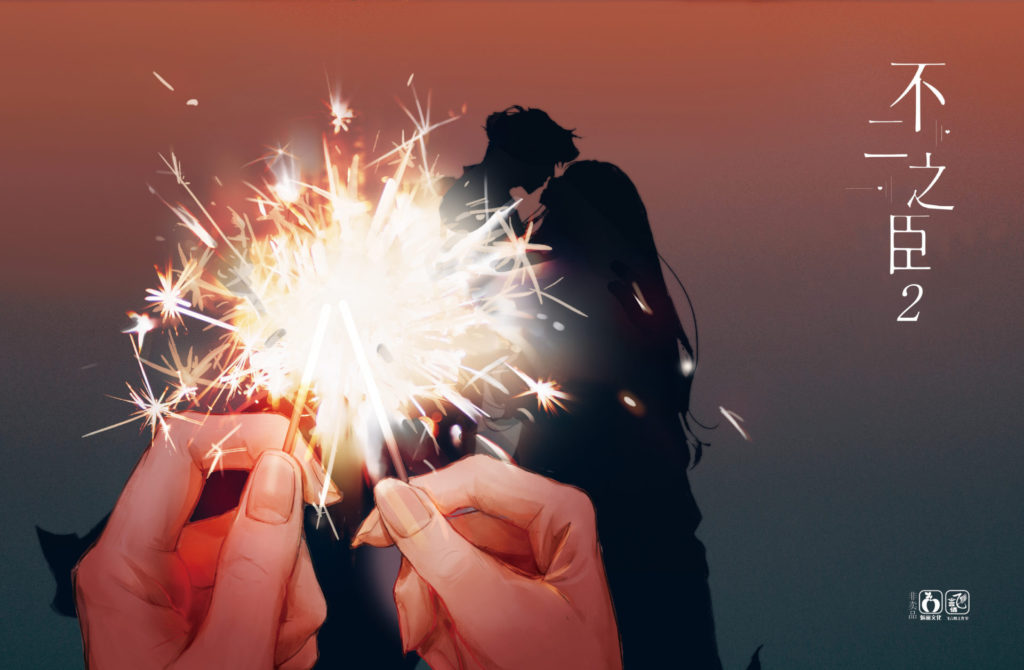Your Most Faithful Companion: Mini Review + Extras Soon

Do you remember how when we were children and you first arrived at Nan Qiao Lane, Ji Ming Shu quite liked you? She would bring little snacks everyday and seek you out to play.
—Jiang Che, Your Most Faithful Companion, Ch. 44
Unfortunately, no new chapters of Peony’s Tavern and Memories this week. I’m a little burnt out from historical novels and need to take a break. Will be in action this week or next.
It’s also been a some time since I’ve posted other kinds of content on this blog, so today’s detour will be about one of my guilty-pleasure favorites, Your Most Faithful Companion (不二之臣 // Bu Er Zhi Chen) by Bu Zhi Shi Ke Cai (不止是顆菜). The Chinese title is more akin to Unparalleled Loyal Subject, but I really like the title that Sleepy Translations used. It was initially posted on JJXWC and published to print in 2020. I discovered it only earlier this year and have admittedly read it multiple times.
I’m a total sucker for forced cohabitation stories like Your Most Faithful Companion, which is about two filthy rich individuals who have polar opposite personalities and are brought together, all thanks to a business marriage. Of course, the signs always point to love.
So basically, it has the same basic premise as every other mid-2000’s Korean and Taiwanese drama out there. But what can I say? I like what I like. And despite the shallowness of it all, I ended up being pleasantly surprised. This was never going to be a groundbreaking read that joins the ranks of Tong Hua’s novels, but for what it is? Yeah, it’s great.
Our heroine, Ji Ming Shu, is a total princess and unabashedly so. This “little golden canary” was groomed to be a trophy wife, destined to live out her life in a gilded cage. She’s not blind to the matter and has, for the most part, accepted her fate. But once she realizes she’s no longer satisfied with the status quo in her marriage, she makes the tough decision of spreading to her wings instead of staying in her comfort zone, even if that means alienating most of the relationships she’s ever known.
She ends up embarking on a road to self-sufficiency and maturity, but the fundamentals of her personality remains the same. Honestly? It wouldn’t make sense any other way. In the end, Ji Ming Shu is still a born and bred sassy princess, albeit a more grounded, layered one. It feels true to who she is while offering readers a character growth that feels satisfying and well-deserved.
Her love interest, Cen Sen, is a textbook “overbearing CEO” type that’s all work and no play. He’s the richest young lad in town and he gives off definite Mr. Darcy vibes, which I totally love. But if this book was called Pride and Prejudice, he would be both pride and prejudice. He’s constantly judging Ji Ming Shu, the spoiled little brat who grew up down the street with him, for all he sees her as. However, there’s no denying an obvious attraction between them, which serves as the (very shallow) basis of their relationship and why they’re willing to put up with one another.
Though it takes a hot minute for the two to get in touch with their feelings and learn that there might be something more, once it happens, everything that follows feels so natural. And when those psychological, holier-than-thou-esque barriers go away, Cen Sen becomes Ji Ming Shu’s most avid supporter.

One thing I appreciated was the use of the seasons in setting the mood in scenes throughout the novel. I wouldn’t go as far as calling it the work of a genius, but this really took the writing one step beyond typical romance novels, supplementing the characters’ emotional turning points as readers follow them in their journey. And as the seasons shift from summer to fall to winter, their relationship evolves and changes in a similar, natural cadence.
Bu Zhi Shi Ke Cai is measured in the way she brings new characters and conflicts into the plot, which is not oft seen in romance novels. Very few of her decisions feel like drama being dragged out for drama’s sake; plot elements are not dropped in and then simply forgotten without a second thought. They usually serve a purpose in world-building, progressing the plot, or servicing character development.
She also has a good sense of humor and will not pass up opportunities to tease her characters for being over-the-top. This satirizing, laced with a sense of endearment for these characters of her own creation, keeps Ji Ming Shu and Cen Sen from becoming so unrealistic that readers have absolutely nothing to relate to. Ahem, I’m looking at you, Crazy Rich Asians.
However, one thing I always felt that the story was lacking was the absence of an alternate universe side story about their school days. There was always a “what if…” of what might’ve been different had Cen Sen been more amiable to little Ji Ming Shu back when they were children, but the topic was never actually explored. What a missed opportunity, right?!
Turns out dumb ol’ me didn’t realize that there are three bonus extras on Bu Zhi Shi Ke Cai’s Weibo. Literally. It was announced on the JJWXC page. Plus, it turns out they’re the alternative universe stories that I was needing in my life. The verdict? They were cute and I loved them. I’m going to be translating all three and posting them on the blog in the upcoming weeks. You don’t need to have read the novel to know what’s going on in the extras, but doing so just makes them that much more enjoyable.
A Mandarin radio drama as well as audiobook of Your Most Faithful Companion is available, but there’s no completed translation of the novel. As much as I would love to do so, I don’t have the bandwidth to take on another long-term project. Nonetheless, I do hope that you enjoy the extras I’ll be sharing.
I’m not sure when they’ll go up, but if you haven’t already, you can follow the blog or subscribe to get updated!
